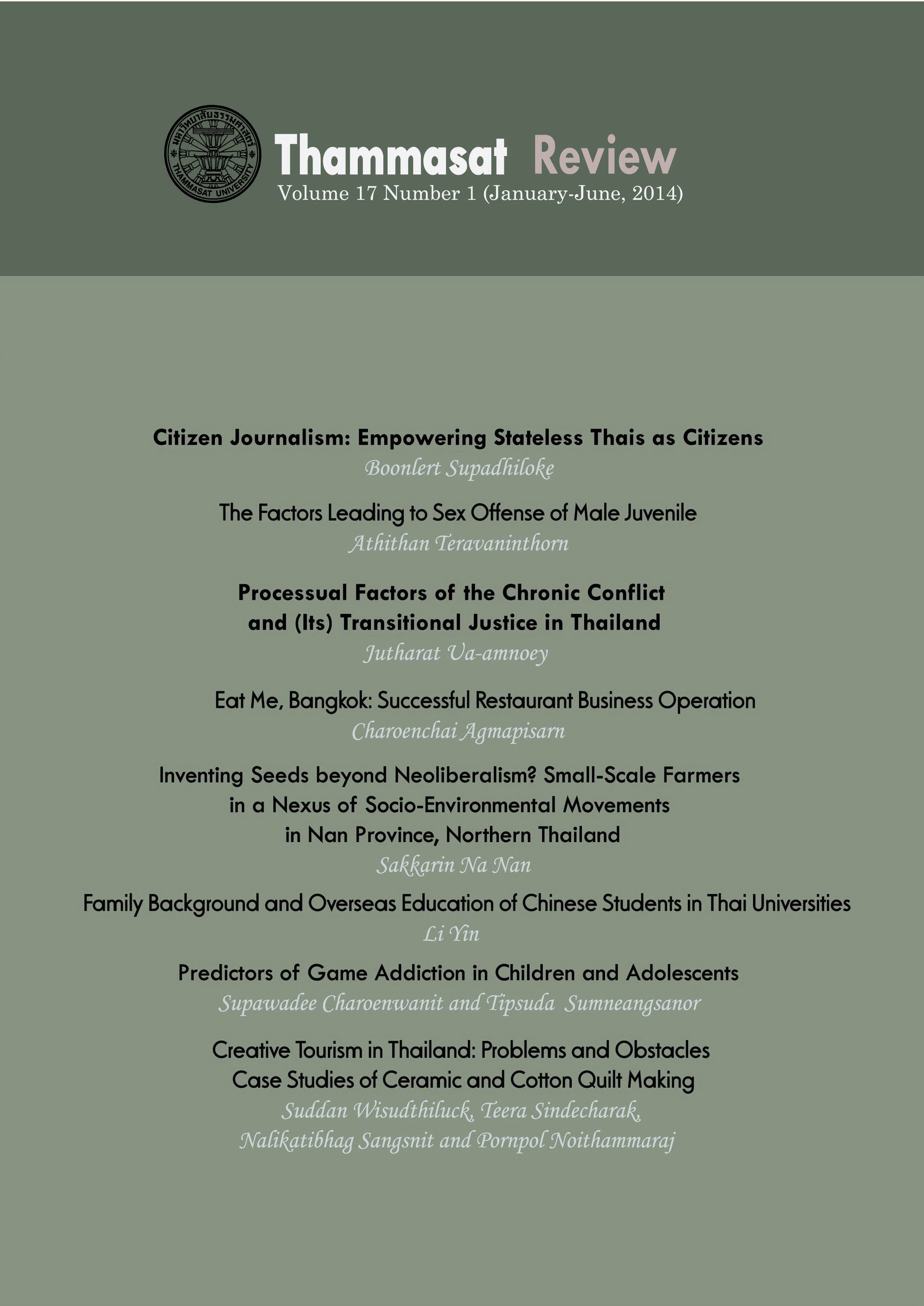Inventing Seeds beyond Neoliberalism? Small-Scale Farmers in a Nexus of Socio-Environmental Movements in Nan Province, Northern Thailand
Abstract
The emergence of community-based resource management cannot be simply understood, especially in the recent shifting seed regime of Thailand in the neoliberal era. By employing the concept of neoliberalization of nature, this paper turns to see the connection between neoliberalism, environmental change and environmental politics in order to understand how small-scale farmers in Northern Thailand are integrated into contract farming for hybrid seed production under global seed companies and conservation of agro biodiversity under socio-environmental movements. By this, an emerging question for socio-environmental movements with anti-neoliberalism is whether the community-based seed management in such circumstances can be grasped as the “commons versus private.” To say more, there are ambivalences of common and private domains in seed management as well as the invention of natures amongst actors like seed companies, state agencies and NGOs under the neoliberal era. The main discussion of this paper is that the socio-environmental movements might help in re-claiming the farmers’ rights to access to plant genetic resources by raising the value of the commons and sustainability; however, the movements, in some ways, still position farmers in the opposition of “public versus private.” Thus, it leads to the limits of understanding how farmers conserve and utilize the plant genetic resources in multiple political spaces in the neoliberal era.
Keywords: Neoliberalization of Nature, Globalized Seed Industry, Contract Farming, Socio-Environmental Movements, Northern Thailand
Downloads
How to Cite
Issue
Section
License
The opinions and ideas expressed in all submissions published in Thammasat Review are solely that of the author(s) and do not necessarily reflect that of the editors or the editorial board.
The copyright of all articles including all written content and illustrations belong to Thammasat Review. Any individuals or organisation wishing to publish, reproduce and distribute a particular manuscript must seek permission from the journal first.








